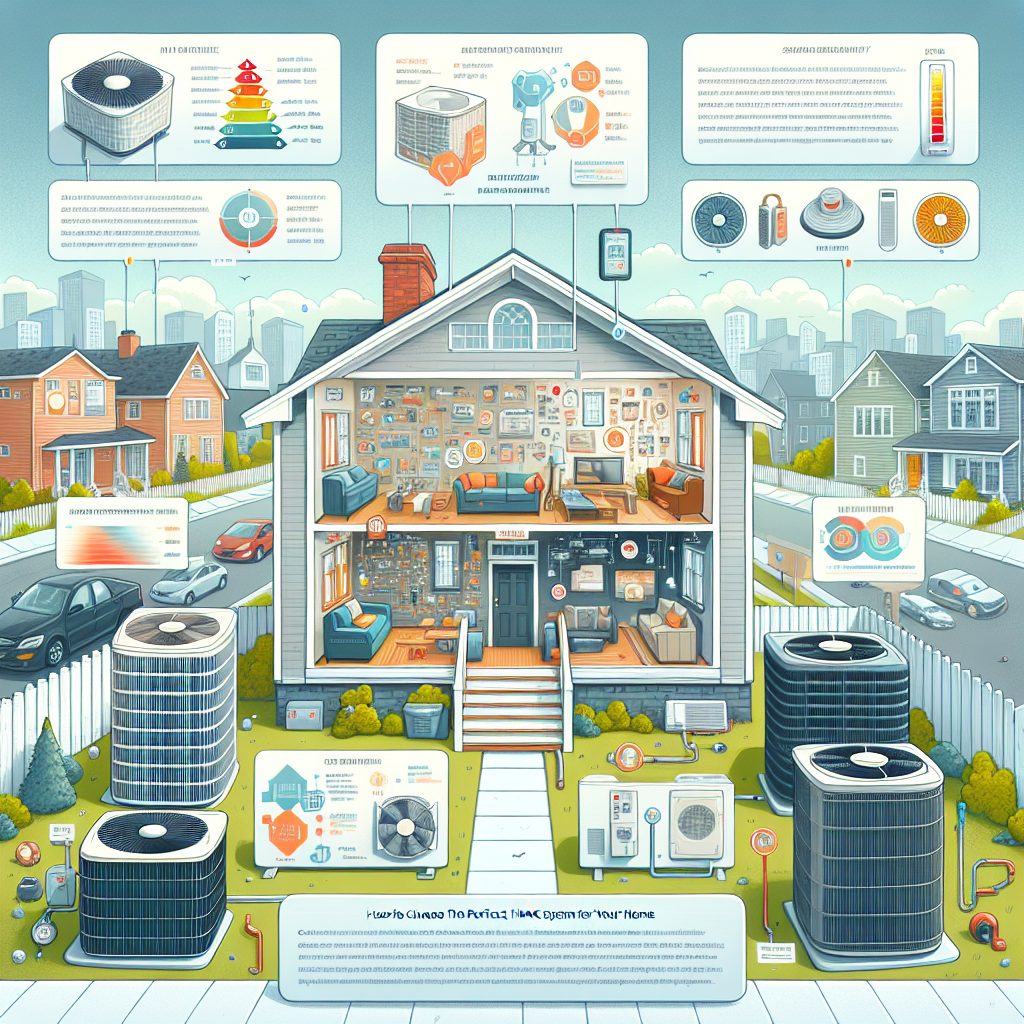How to Choose the Perfect HVAC System for Your Home: A Complete Guide
Introduction
Welcome to the world of HVAC, where comfort meets technology, and your home becomes a cozy haven regardless of the weather outside. If you’re feeling overwhelmed by the sheer number of options for residential HVAC systems, you’re not alone! Choosing the right system can feel like trying to find a needle in a haystack if that haystack were also on fire from the summer heat or buried under snowdrifts in winter.
But fear not! This guide is designed to simplify the process and help you navigate through the maze of choices with ease. Whether you’re looking for energy-efficient HVAC systems for homes or reliable residential heating and cooling services, we’ve got you covered.
Did you know that hiring licensed residential HVAC professionals can improve your system’s efficiency by up to 30%? That’s right! A professional installation means fewer headaches down the line.
We’ll dive into everything from how to assess your home’s specific needs to understanding what makes one system better than another. Plus, we’ll discuss why working with expert home HVAC technicians is crucial for ensuring long-lasting comfort in your abode.
So grab a cup of coffee (or something stronger), sit back, and let’s embark on this journey together. By the end, you’ll be equipped with all the knowledge you need to make an informed decision about your home HVAC installation!
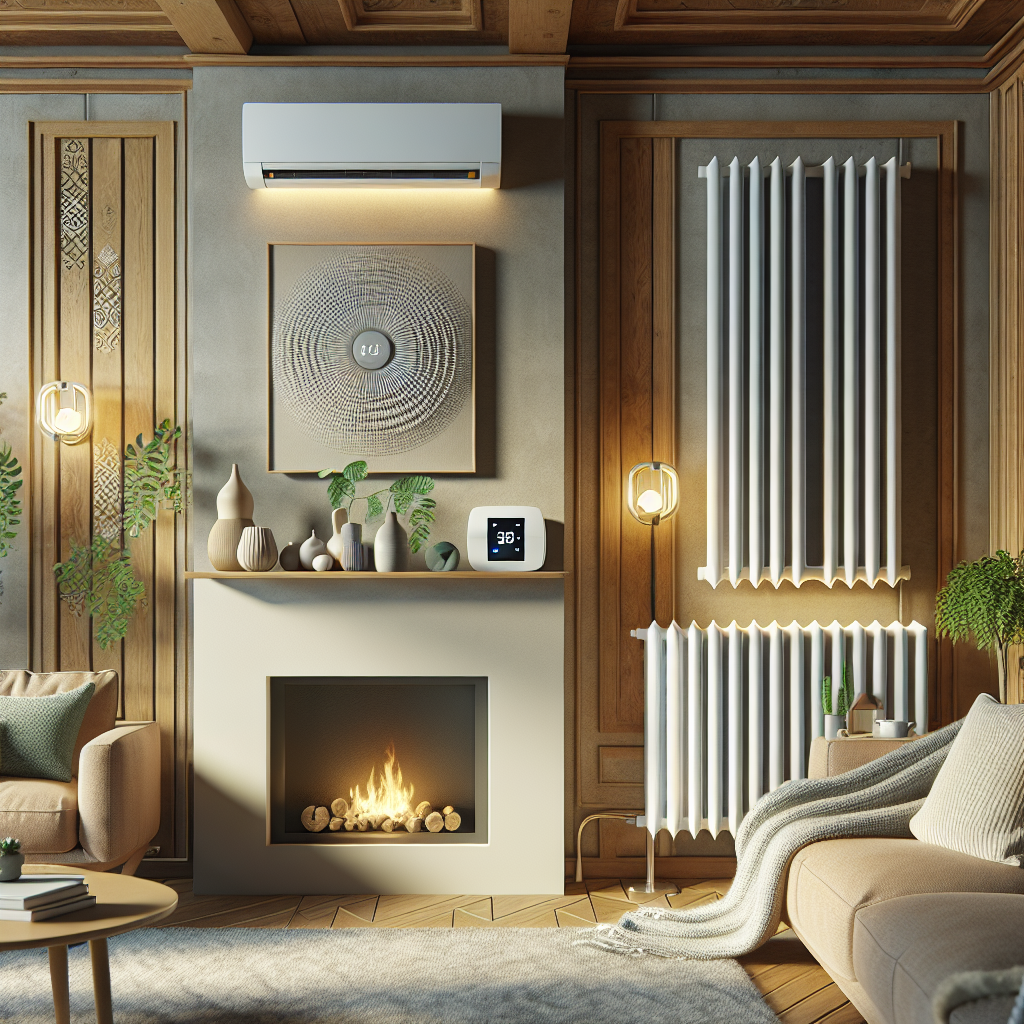
Understanding Your Home’s HVAC Needs
Before you dive headfirst into the world of HVAC systems, it’s crucial to understand your home’s unique heating and cooling needs. Think of it as a tailored suit versus off-the-rack one fits like a glove, while the other might leave you feeling a bit… well, uncomfortable.
Assessing Home Size and Layout
The first step in this journey is to assess your home’s size and layout. Larger homes often require more robust systems, while smaller spaces might do just fine with a compact model. Consider the following:
- Square footage: Measure your living space.
- Number of floors: Multi-story homes may need zoned heating and cooling.
- Room orientation: South-facing rooms might need more cooling in summer.
Identifying Local Climate Conditions
Your local climate plays a starring role in determining the right HVAC system. For instance, if you live in Lehigh Valley where winters can be chilly and summers can sizzle, you’ll want an efficient heating system alongside a reliable air conditioner. Here are some factors to consider:
- Average temperature ranges throughout the year.
- Humidity levels: High humidity can make hot days feel even hotter!
- Seasonal weather patterns: Snowstorms or heatwaves? Plan accordingly!
Evaluating Existing Ductwork and Insulation
If you’re considering a new HVAC installation for homes with existing ductwork, it’s essential to evaluate its condition. Poorly insulated or leaky ducts can sabotage even the most energy-efficient systems. Here’s what to look for:
- Duct integrity: Are there any visible holes or loose connections?
- Insulation quality: Is it up to current energy standards?
- Airflow efficiency: Are all rooms receiving adequate airflow?
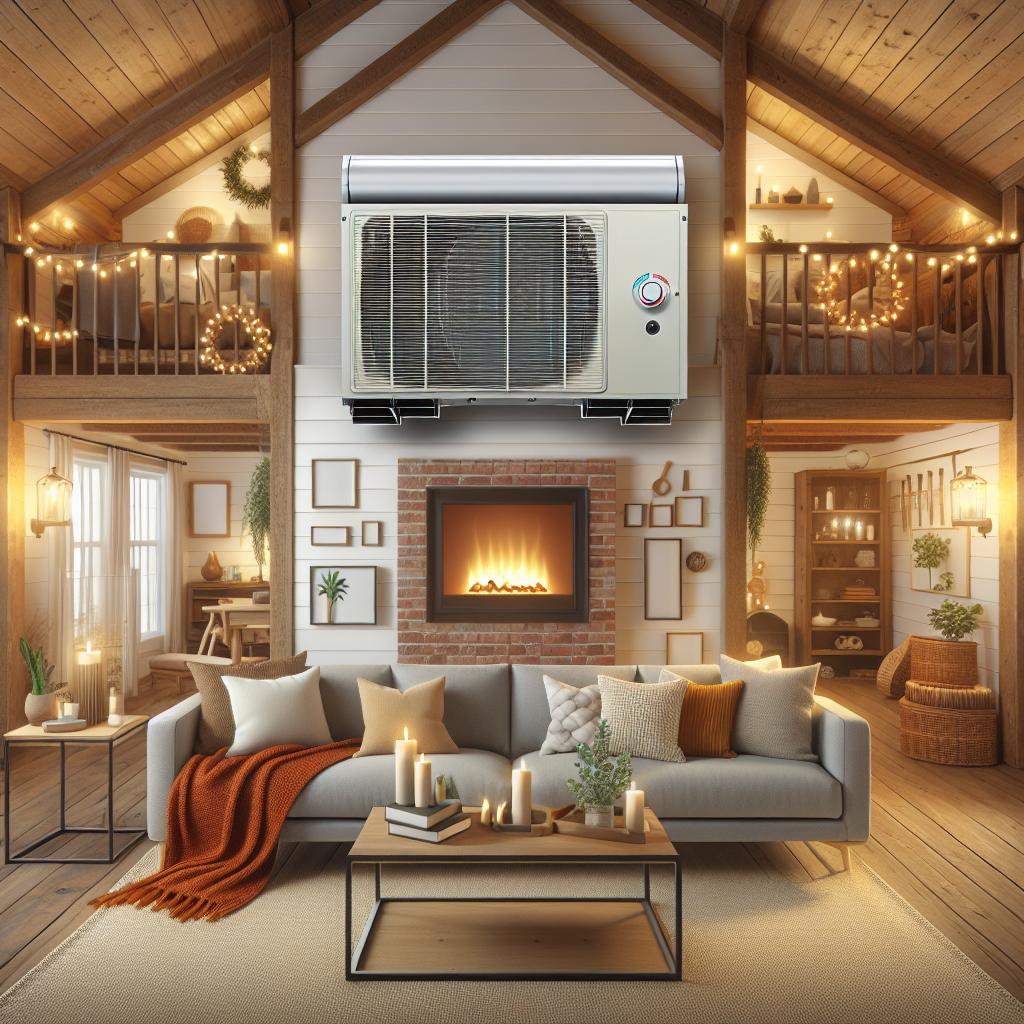
Types of HVAC Systems Available
Choosing the right HVAC system for your home is like picking the perfect outfit for a first date: it needs to fit well, look good, and keep you comfortable! Let’s dive into the various types of systems available, so you can impress not just your guests but also your wallet.
-
Central Air Conditioning Systems
These are the classic choice for many homes. Central air conditioning systems cool your entire home through a network of ductwork. They’re efficient and effective, especially when paired with smart thermostats that optimize energy use.
-
Heat Pumps
Heat pumps are like the Swiss Army knives of HVAC systems. They can both heat and cool your home by transferring heat between indoors and outdoors. Plus, they’re known for being energy-efficient perfect for those eco-conscious homeowners!
-
Ductless Mini-Split Systems
If you’re living in a smaller space or want to avoid ductwork altogether, ductless mini-splits are a fantastic option. They allow you to control temperatures in individual rooms, which means no more arguing over the thermostat!
-
Furnaces and Boilers
When winter hits, having a reliable heating system is crucial. Furnaces blow warm air through ducts while boilers use hot water to heat radiators or floors. Both options have their perks; just consult with residential heating and cooling services to see what fits best!
-
Energy-Efficient Options
Looking to save on those energy bills? Energy-efficient HVAC systems are designed to use less energy while providing optimal comfort. Think of them as the superheroes of climate control saving money while saving the planet!
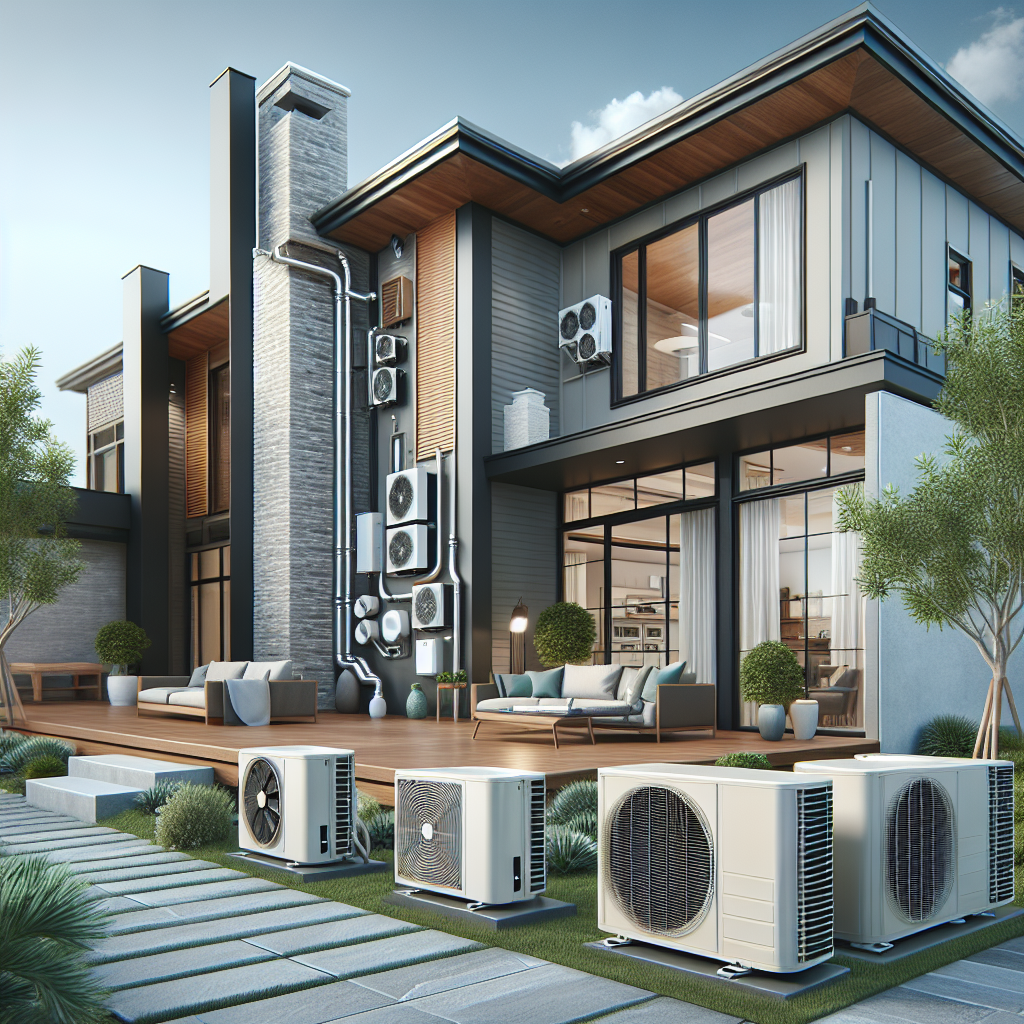
Key Features to Consider When Choosing an HVAC System
When it comes to selecting the right HVAC system for your home, it’s not just about picking a shiny new unit and calling it a day. Oh no! You want to ensure you’re making a choice that suits your needs, wallet, and comfort level. Here are the key features to consider:
-
Energy Efficiency Ratings (SEER, AFUE)
First off, let’s talk about energy efficiency. Look for systems with high Seasonal Energy Efficiency Ratio (SEER) ratings for air conditioning and Annual Fuel Utilization Efficiency (AFUE) ratings for heating. These numbers tell you how efficiently the system converts energy into heating or cooling. The higher the rating, the lower your utility bills! It’s like having a personal trainer for your wallet getting fit without breaking a sweat.
-
Noise Levels of the System
No one wants to live in a house that sounds like a jet engine is taking off every time the HVAC kicks in. Check out noise ratings (measured in decibels) before making your choice. A whisper-quiet unit can be a game changer, especially if you enjoy peaceful evenings or have little ones napping.
-
Smart Technology Integration
If you’re living in 2025 and still adjusting your thermostat manually, it’s time for an upgrade! Look for systems that support smart technology integration. Smart thermostats can learn your habits and adjust temperatures accordingly saving energy while keeping you comfy. Plus, who doesn’t love controlling their home’s climate from their smartphone? It’s like having superpowers!
-
Air Quality Solutions
Your HVAC system isn’t just about temperature; it’s also about air quality. Consider units with advanced filtration systems that can trap allergens and pollutants. Some even come with built-in humidifiers or dehumidifiers to maintain optimal moisture levels in your home because nobody wants to feel like they’re living in a desert or a sauna!
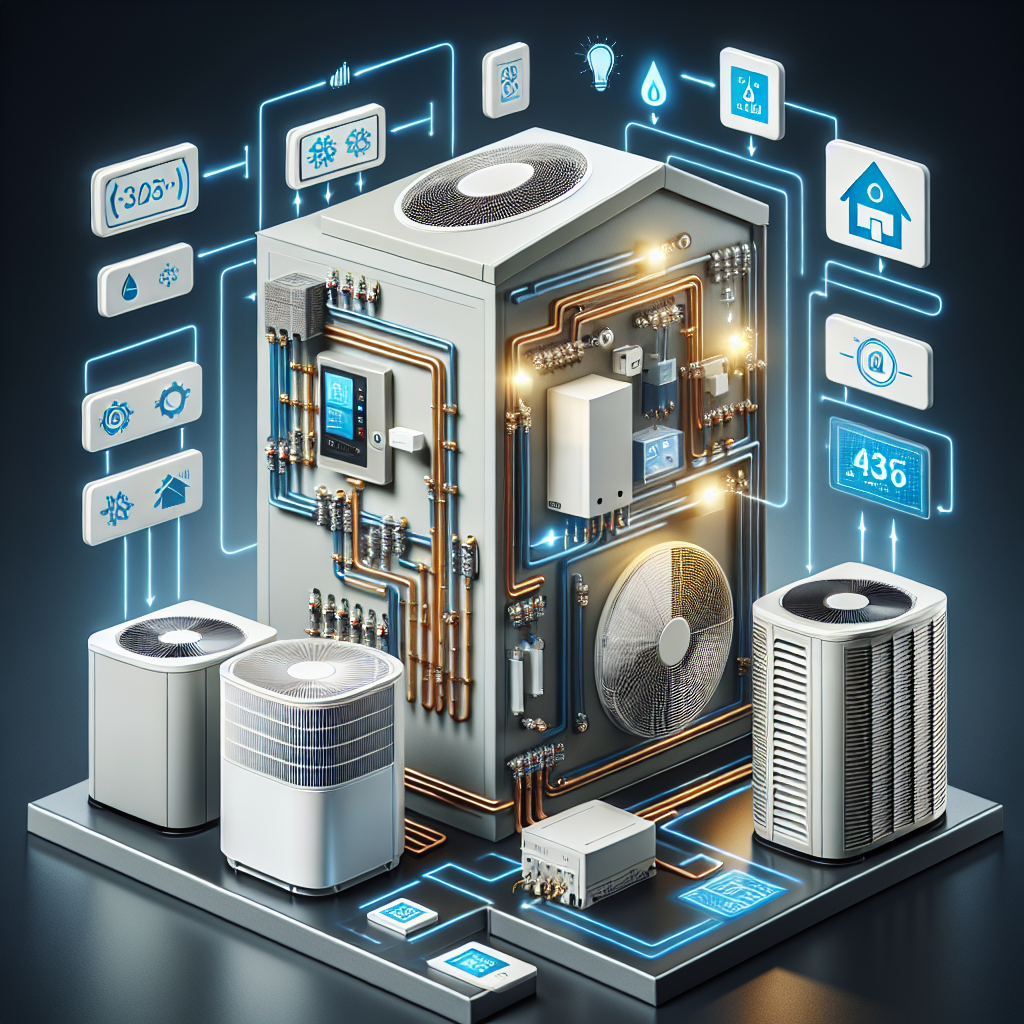
The Importance of Professional Installation
When it comes to your home’s HVAC system, you wouldn’t trust just anyone to install it, right? Think of residential HVAC installers as the skilled artisans of comfort they know the ins and outs of heating and cooling systems like a chef knows their spices. A professional installation can make all the difference between a cozy haven and a chilly disaster.
- The role of residential HVAC installers: These experts bring their know-how to the table, ensuring that your system is installed correctly from the get-go. They understand the specific needs of your home and can tailor the installation process accordingly.
- Benefits of hiring licensed HVAC professionals: Licensed contractors not only have the necessary training but also stay updated on local codes and regulations. This means you can rest easy knowing your installation is compliant and safe.
- The impact of proper installation on system efficiency and longevity: Did you know that improper installation can lead to up to 30% energy waste? That’s money down the drain! A well-installed system by expert home HVAC technicians ensures optimal performance, which translates into lower utility bills and a longer lifespan for your unit.
Key Takeaway: Investing in professional home HVAC services isn’t just about getting the job done; it’s about ensuring your system operates at peak efficiency for years to come. Think long-term savings!
In addition to efficiency, professional installation enhances comfort levels throughout your home. Imagine having a perfectly balanced temperature across every room sounds dreamy, right? That’s what expert installation can achieve! Plus, they’ll handle any tricky ductwork or ventilation issues that might arise during installation, which is especially crucial for central air installations for homes with existing duct systems.
So, while it might be tempting to go with an affordable DIY approach or hire someone who claims they “know a thing or two” about HVAC systems, remember: when it comes to heating and cooling your home, you want trusted home heating and cooling experts on your side. After all, no one wants their new furnace blowing cold air or their shiny new AC unit running like a dinosaur!
Cost Considerations for HVAC Installation
When it comes to installing a new HVAC system, the cost can feel like a rollercoaster ride thrilling yet slightly terrifying! But fear not, because understanding the financial landscape can help you navigate this ride with ease.
Initial Purchase and Installation Costs
The first thing to consider is the upfront costs associated with your new system. This includes:
- Equipment costs: The price of the HVAC unit itself varies widely based on type and brand.
- Installation fees: Hiring professional residential HVAC installers is crucial; their expertise ensures that everything runs smoothly.
- Ductwork adjustments: If your home needs new or modified ductwork, this will add to your overall expenses.
Long-Term Energy Savings with Efficient Systems
While the initial investment may give you sticker shock, think of it as planting a money tree! Energy-efficient systems can lead to significant savings on your utility bills over time. Here’s how:
- Lower monthly bills: High SEER ratings mean more efficient cooling and heating.
- Increased home value: Energy-efficient homes often attract buyers who are willing to pay more for lower energy costs.
- Tax credits and incentives: Depending on local laws, you may qualify for rebates that can offset installation costs!
Potential Rebates and Financing Options Available in Lehigh Valley Area
If you’re feeling overwhelmed by costs, don’t throw in the towel just yet! Here are some financial lifelines available in the Lehigh Valley area:
- Local utility rebates: Check with your utility provider for any available rebates on energy-efficient installations.
- Financing plans: Many reliable residential HVAC companies offer flexible financing options that break down payments into manageable chunks.
- Government programs: Look into state or federal programs aimed at promoting energy efficiency in homes!
Takeaway: While the initial cost of HVAC installation may seem daunting, considering long-term savings and available incentives can make it a worthwhile investment. Always consult with expert home HVAC technicians to find solutions that fit both your budget and comfort needs!
Maintenance and Support for Your HVAC System
Congratulations! You’ve chosen the perfect HVAC system for your home. But wait, before you kick back and enjoy that sweet, sweet climate control, there’s one crucial thing left to tackle: maintenance and support. Think of it as your HVAC system’s gym membership without it, things might get a little rusty.
- The importance of regular maintenance services from residential HVAC contractors: Just like a car needs oil changes, your HVAC system thrives on regular check-ups. Scheduling routine maintenance with residential HVAC contractors ensures that everything runs smoothly and efficiently. It’s not just about keeping cool in summer or warm in winter; it’s about prolonging the life of your system.
- Emergency repair services for unexpected issues: Imagine it’s a sweltering July afternoon, and suddenly your air conditioner decides to take a vacation. Panic mode activated! That’s where emergency repair services come into play. Having a go-to team of local HVAC installers who offer 24/7 support can save you from sweating bullets (and I don’t mean from the heat!).
- Pitfalls of neglecting home HVAC maintenance services: Skipping regular maintenance is like ignoring the warning lights on your dashboard eventually, something’s going to give. Neglect can lead to costly repairs down the line or even a full system breakdown when you need it most. Avoid this fate by investing in preventative maintenance for home HVAC systems.
Key Takeaway: Regular maintenance is key to keeping your residential heating and cooling services running at peak performance. Don’t wait for a breakdown schedule those check-ups!
Conclusion
- Recap of key points in choosing the right system
- Encouragement to consult with local HVAC installers for personalized advice


